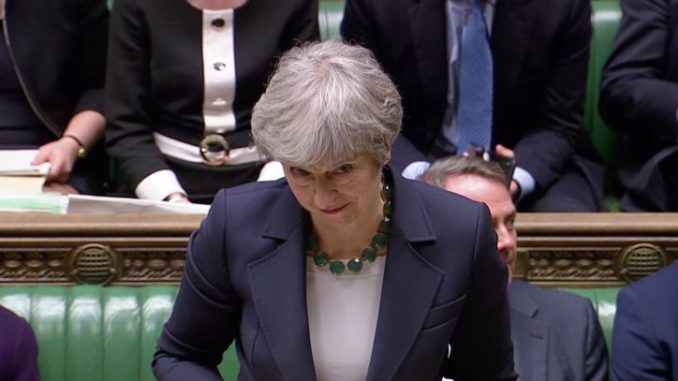
The U.K. is no longer expected to leave the EU on Friday, as British lawmakers remain at odds over how to leave the bloc.
So when will Brexit happen? Here are the next important dates in the U.K.’s process of withdrawing from the EU.
Monday, March 25
U.K. lawmakers are due to debate the next steps. Given the four month-long impasse in the House of Commons, Prime Minister Theresa May has asked the EU for more time to try to reach a consensus.
Parliamentarians remain divided about Brexit. May believes her deal with the EU is the best way to deliver Brexit, but certain politicians strongly object on one of the policies of her deal — the Irish backstop. This is an insurance policy that looks to prevent a hard border between Northern Ireland (which is part of the U.K.) and the Republic of Ireland (which will remain an EU country), in case the U.K. and the EU do not strike a trade agreement.
In order to decide what happens next, U.K. lawmakers will discuss plans for “indicative votes” on Monday afternoon, and then are likely to vote late in the evening on whether these will take place on Wednesday this week. If approved, it would allow lawmakers to take control of parliamentary business and potentially hold votes that test out different Brexit options, undermining May’s control of the situation.
Tuesday, March 26
U.K. lawmakers could have a third vote on May’s deal — formally called the withdrawal agreement.
The EU may have given the U.K. an extension may it came with some caveats. If British MPs approves the agreement this week, then Brexit will be extended until May 22. If it’s rejected again, the U.K. has until April 12 to leave the EU.
Friday, March 29
U.K. law is still ready for a departure this Friday. So the House of Commons needs to decide until when it’s going to extend its EU membership and then update the current law.
Friday, April 12
If U.K. lawmakers fail to reach a compromise then this will be the day of a no-deal Brexit. This would mean the U.K. would stop being a member of the EU overnight, without any deal or transition period — a scenario that would bring massive uncertainty for businesses, citizens and markets.

WATCH NOWVIDEO05:34Does Brexit mean it’s over for the Port of Dover?
The reason it’s this date relates to the upcoming EU elections at its Parliament, due in late May. Under law this is the deadline by which the U.K. needs to inform the EU whether it wants to hold European Parliament elections itself, even though it’s leaving the bloc.
Thursday, April 18
This is the last session of the European Parliament before the elections — meaning this will be the last chance for current EU lawmakers to ratify the withdrawal agreement at their end. They are waiting for the U.K.’s approval before voting on the deal but it’s expected that the chamber will approve the deal.
Wednesday, May 22
If U.K. parliamentarians have approved the withdrawal agreement, this is the new date for the U.K.’s departure from the bloc. After this date, the U.K. will then be a position to start the second phase of the negotiating process, which is focused on striking a new trade deal between the 27 EU nations and the U.K.
Thursday, May 23
European citizens vote on their new representatives for the European Parliament. The voting process lasts until May 26.
Tuesday, July 2
The newly-elected European Parliament has its first plenary session.

BY CNBC NEWS
